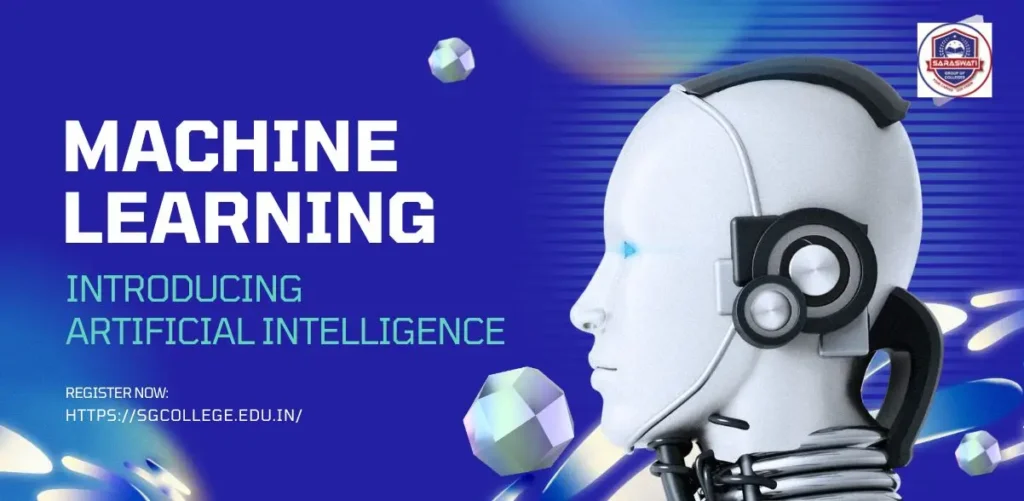SGC Gharuan: Nursing College, Ayurveda College, Pharmacy College
Exposing the Potential of Machine Learning in All Sectors

Machine learning (ML) has become a ubiquitous term, whispered in boardrooms and splashed across tech headlines. But what exactly is it, and how is it revolutionizing every sector imaginable? This blog dives deep into the transformative power of Machine learning, exploring its applications across a vast landscape of industries.
Understanding the Machine Learning Engine
At its core, ML empowers computers to learn and improve without explicit programming. By analyzing this data, ML algorithms identify patterns and relationships, allowing them to make predictions and automate tasks. Imagine a machine that learns from past sales data to predict future customer behavior, or a system that analyzes medical images to detect diseases with unmatched accuracy. That’s the magic of ML.
Revolutionizing Industries: From Finance to Farming
Now, let’s delve into the specific ways ML is reshaping various sectors:
- Finance: Fraud detection becomes a breeze with ML algorithms analyzing transactions for suspicious patterns in real-time. Additionally, ML models are used for credit risk assessment, personalized financial planning, and high-frequency trading.
- Healthcare: Early disease detection, personalized medicine, and drug discovery are all getting a boost from ML. By analyzing medical scans and patient data, ML can identify potential health issues earlier than ever before, leading to earlier intervention and improved outcomes.
- Manufacturing: Predictive maintenance is a game-changer in manufacturing. ML algorithms analyze sensor data from machines to predict potential failures, allowing for preventative maintenance and avoiding costly downtime.
- Retail: Gone are the days of generic recommendations. ML personalizes the shopping experience by analyzing customer data and purchase history, suggesting products relevant to individual needs and preferences.
- Transportation: Autonomous vehicles are no longer science fiction. ML is at the heart of self-driving cars, enabling them to perceive their surroundings, navigate roads, and make real-time decisions in dynamic environments.
- Agriculture: Precision agriculture is revolutionizing the way we grow food. ML algorithms analyze soil data, weather patterns, and crop health to optimize resource usage, maximize yields, and minimize environmental impact.
These are just a few examples – the list goes on! Machine learning is making waves in sectors like logistics, cybersecurity, media and entertainment, and even scientific research.
Benefits and Considerations
The benefits of ML are undeniable – increased efficiency, improved decision-making, and innovation across the board.
- Bias: If the data used to train ML models is biased, the resulting algorithms can perpetuate that bias. Careful data selection and model evaluation are essential.
- Job displacement: Automation through ML might lead to job losses in certain sectors. However, it’s more likely to create new opportunities requiring different skillsets.
- Explainability: Some advanced ML models can be complex “black boxes” where the decision-making process is not entirely transparent.
The Future of Machine Learning
As technology advances and data becomes even more abundant, ML will continue to evolve. Expect to see even more sophisticated algorithms, improved explainability techniques, and a growing emphasis on ethical considerations.

Conclusion: Embracing the Machine Learning Revolution
Machine learning is not just a buzzword; it’s a powerful tool with the potential to transform our world. By understanding its capabilities, addressing its challenges, and embracing its ethical development, we can ensure that ML serves humanity for the betterment of all sectors. The future is full of possibilities, and machine learning is at the forefront, driving innovation and progress across every aspect of our lives.

















No Comments yet!